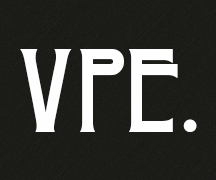Original in Spanish March 1, 2006
Author: Carlos Ramírez Powell
Edited by S. Naylor
Since the end of WW II European dependence on soviet energy supplies has been a fact of life that everybody tries to forget nowadays. With the exception of Romania, the countries behind the “Iron Curtain” received unlimited amounts of fossil fuels at giveaway prices.
In contrast with Cuba – which suffered a catastrophic disappearance of fuel shipments when the Soviet Union broke up – Eastern Europe kept receiving oil, natural gas, and refined products without too much turmoil on the pricing front because they were still, more or less, under the Russian sphere of influence. With time, the network of gas pipelines grew throughout Europe and became of primary importance in the German energy supply equation.
In these years of the comeback of the geostrategic vision of Russia, with the eccentric phase of neoliberal free market fire-sale experiments of the Yeltsin era over; it was only a matter of time for energy to become the centerpiece of economic thinking in Europe. After all, it’s Russian natural gas which heats and fuels the industrial engine of most of the continent.
The growth of the U.S. presence in the political processes in central Asia and Eastern Europe has to be framed and can be explained in this context. Throughout the last decade of the 20th century there were excessively optimistic perspectives on the productive potential of the Caspian Sea energy potential. There was even talk about the Caspian region being the “New Saudi Arabia”. Even though these expectations fell short of the mark, since real reserves were 5 to 7 times overblown as to what was really there; nonetheless, there was a rush of investments in these fields and in the deployment of pipelines which – markedly – would bypass Russian territory to deliver to international markets.
Once the struggles to get rid of the energy oligarchs was over – with the control of the Yukos conglomerate and the elimination of Mikhail Khodorkovsky as Partner and front for the western oil interests – Russia opened a new strategic stage where the possession of the oil/gas fields plus the pipelines became the centerpiece in European politics. This is the trump card in negotiations with Ukraine, Belarus, Moldova, and Georgia.
These countries that have allowed themselves to be dominated by U.S. influence – and had their democratic processes not so subtly guided by the N.E.D. (National Endowment for Democracy) – found themselves dependent upon the “power” from which they wished to liberate themselves. This “emancipation” came back to haunt them in the form of past-due bills with Moscow’s announcement that it will deliver gas at market prices.
V. Putin (surely with a smile) even offered a loan to Victor Yuschenko so that he could acquire natural gas at the new free market price. Yuschenko refused with the argument that he would pay from his own (Ukraine’s) resources “according to a price that could be understood as objectively tabulated” . The hidden assumption of this retort, and his sole negotiation card, was that Ukraine was the transit point for all gas flowing to Europe. In the short term, the impact would be felt most severely by Hungary – who was watching these developments with some alarm due to the intransigence of the positions of Russia and Ukraine.
Meanwhile, Ukraine is seeking alternate supply sources in Turkmenistan… How will such supplies make it to the Ukrainian market? Here’s where we open the map and try to draw new pipeline projects. What’s clear from this confrontation is that Yuschenko’s negotiation stance is a weak one since Putin has not opened any new alternatives other than prompt payment on the new price range.
All of Europe is hanging by the thread of these pipelines, so even though Marko Frank of the Euro-Commission declares that the conflict has to be resolved with the market prices as reference, there’s no mistaking that Ukraine has the undivided attention of the whole of Europe. Any undefined supply disruption of the gas supply to Europe is catastrophic, and therefore, unthinkable.
In the beginning of 2006, with this brief description of the gas conflict, we are bearing witness to the transfer of the director’s baton of the European concert to V. Putin. The effects of this shift will be profound and long lasting. Stalin once formulated the question: how many armed divisions did the pope have to claim a seat at the Yalta convention… Nowadays, to claim a seat in the negotiations table the pertinent question is: “How many barrels of oil/cubic feet of gas do you have to claim a seat? In this respect, Russia has the first – and the last – words in Europe.




“Nowadays, to claim a seat in the negotiations table the pertinent question is: “How many barrels of oil/cubic feet of gas do you have to claim a seat? In this respect, Russia has the first – and the last – words in Europe.”
This is a very comforting thought. A foursome of ACES that can be used to keep jusa/eu in line to some degree.
Now with more and more reasoning national leaders emerging and Putin having connected up with them and keeps doing so with nations who wish to disconnect from the zioWestern cabal there IS hope and maybe just a glimmer of a rainbow?
hoping and wishing and envisioning .
So glad we have a V.Putin in our world at this critical time as well as PM Lavrov who is a prize negotiator.
Wise heads indeed.
`
LikeLike
Posted by sophiaheidler | Aug 16, 2014, 22:06Reblogged this on leruscino.
LikeLike
Posted by leruscino | Aug 17, 2014, 06:57